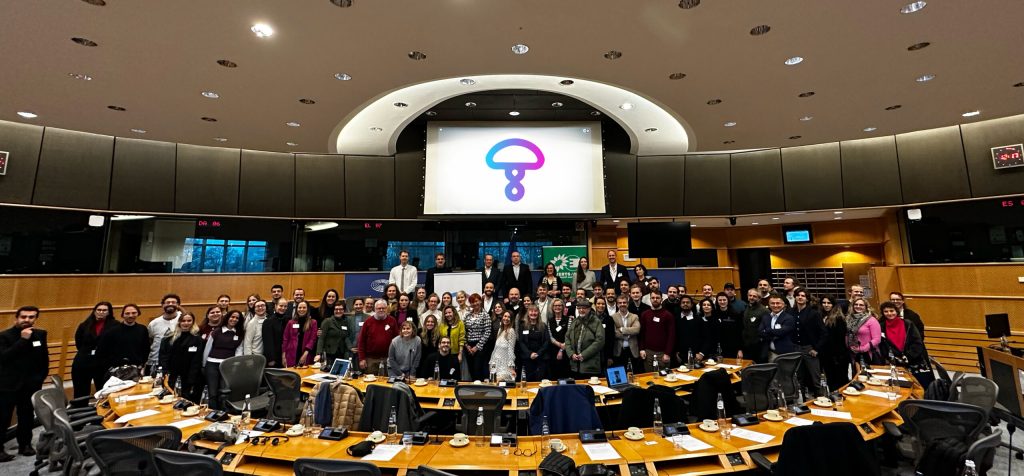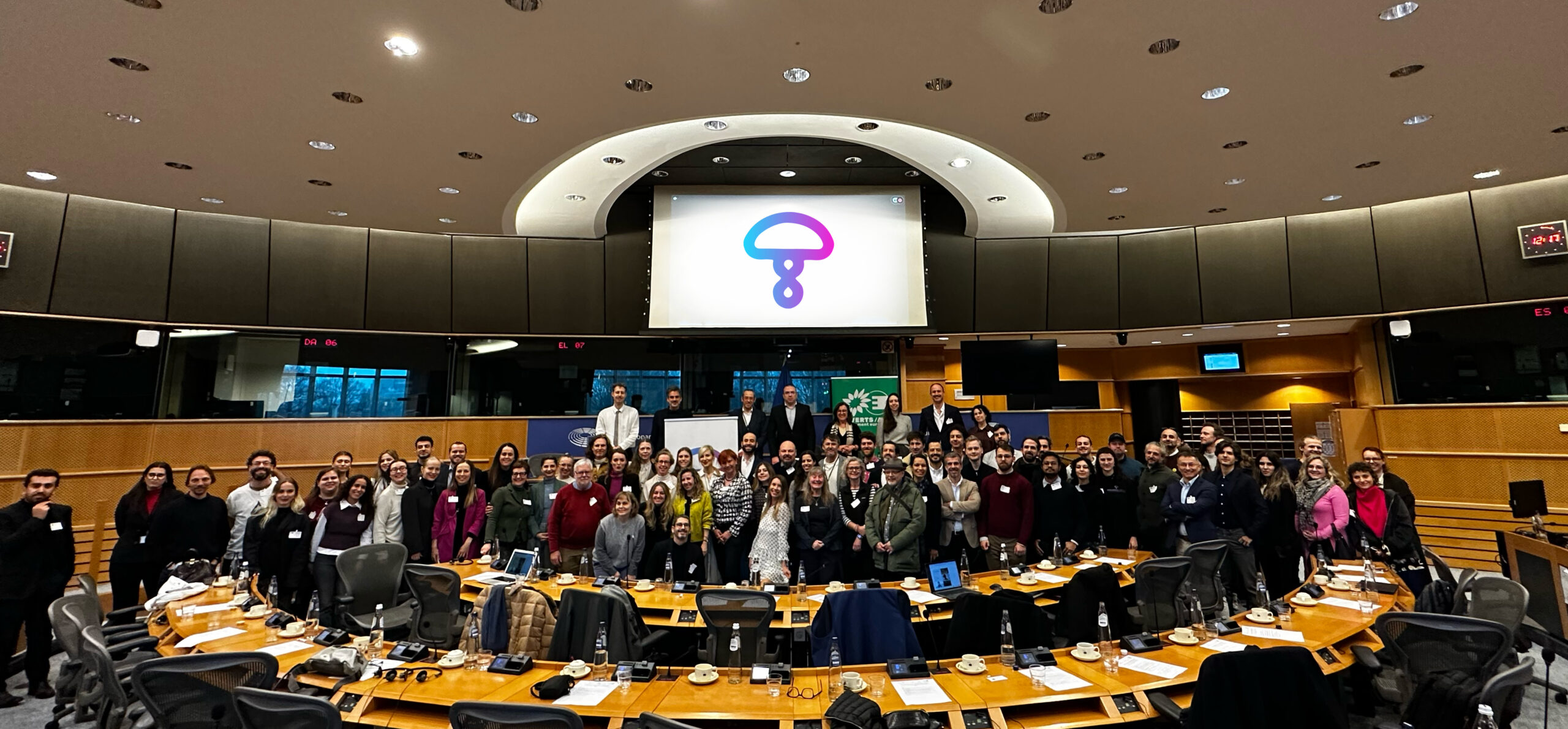A mental health crisis
A cancer diagnosis is a ground-shaking moment. The daunting treatments, the people we love, our careers, and the sudden fear of death – all run at miles in our heads. In Switzerland, Andrea faced this reality. During a particularly aggressive course of chemotherapy, he enrolled in a clinical trial led by the University of Basel, exploring LSD-assisted therapy for patients grappling with anxiety related to life-threatening illnesses. Through this experience, Andrea began to notice a transformation. His relationship with his emotions deepened. He found himself judging less and embracing more, not just in others, but also himself. The external roles imposed by society, or the chatter inside his own head, started to loosen their grip. He feels less stuck in external roles of society or in his own head – choosing feeling, over thinking. His connection with his family grew stronger, and perhaps most profoundly, his relationship with death shifted. “I’ve seen what I’m expecting. That makes it less scary.” he shared. “I hope more patients have access to these kinds of treatments.”
His history here: How LSD Saved My Mind – Andrea’s Healing Story
In the European Union (EU) today, mental ill health affects more than one in six people. The economic toll of conditions such as depression, anxiety, post-traumatic stress disorder, and addiction is estimated at €600 billion annually—over 4% of Europe’s GDP. But beyond the numbers are stories of human struggle, affecting communities, the workplace, families, and becoming a leading cause of disability across EU member states.
For decades in psychiatric care, many patients see little improvement and are suffering significant side effects. Others are prescribed lifelong treatments that address symptoms rather than root causes. As Kan Duckworth, Chief Medical Officer at the UK National Alliance on Mental Illness, puts it, “Too frequently we are left with the same old treatments. Treatments that my father could have been given decades ago.”
Science points to the benefits of psychedelics, law says otherwise
Studies today indicate that psychedelic-assisted therapies (PATs) may offer a significant advancement in mental health care. Clinical trials using substances such as psilocybin (active component of magic mushrooms), MDMA (popularly known as ecstasy), LSD and ketamine are flourishing and have demonstrated promising results for patients with depression, PTSD, end-of-life anxiety, and addiction. One recent study found that two sessions with psilocybin, combined with psychotherapy, led to sustained improvement in patients with major depressive disorder. Participants often describe long-lasting relief after just a few sessions—an outcome rare in conventional treatments.
Countries like Australia, Switzerland have already integrated psychedelic-assisted therapies into their medical systems and many international research institutions are actively contributing to the growing body of evidence, from Imperial College London to the University of Zurich. The EU has engaged with the field, such as the July 2024 FAQ by EUDA on therapeutic use of psychedelic substances. Also, in April 2024 EMA multi-stakeholder workshop on psychedelics – the report can be found here. Lastly, PsyPal Project, Psilocybin Therapy for Psychological Distress in Palliative Care Patients, the first psychedelic-assisted therapy clinical research funded by the EU, in 9 countries and bringing 19 organizations together, including the Open Foundation.
However, the use of psychedelic drugs, for most purposes, is illegal across Europe and the United Nations classifies them as schedule I drugs that have no accepted medical use.
The laws that govern them were shaped over 50 years ago, in a time marked by fear, stigmatization, and the influence of a parallel political agenda – not by scientific understanding. They reflect the legacy of the so-called “War on Drugs,” rather than the insights of current medicine. The 1971 United Nations (UN) Convention on Psychotropic Substances, which many EU laws align with, classifies psychedelics alongside substances of high potential for abuse and no medical value. This scheduling ignores decades of research and the emerging evidence of their therapeutic benefit.
Moreover, this disconnect between law and science continues to shape public perception. Psychedelics are still often stigmatized and associated with moral panic and fear. As a result, policy discussions tend to easily disregard the positive sides – if they happen at all.
PsychedeliCare, a European Citizens’ Initiative
PsychedeliCare is a European Citizens’ Initiative (ECI) a formal democratic tool introduced by EU treaties, since 2012. It is not merely an advocacy group or a petition, but a structured legal process that compels the European Commission to respond to citizens’ legislative proposals. This applies if they are able to collect one million signatures across at least seven EU Member States within a one-year period. Launched in 2025, this pan-European movement of scientists, therapists, activists, and citizens aims to bring psychedelic-assisted therapies into Europe’s legal and medical systems.
The initiative calls on the European Commission to support three actions:
- Establish professional and patient consensus on standards of psychedelic care.
- Increase EU-funded research into psychedelic therapies.
- Adopt a common position regarding the appropriate scheduling of psychedelic substances under international conventions.
By leveraging the ECI process, PsychedeliCare is using the EU’s own democratic tools to push for legal and policy reform. It is a call for rational regulation, grounded in science and patient rights.
As Théo Giubilei, founder of the initiative, explains, “PsychedeliCare is a participatory democracy tool to put pressure on the EU to finally take action on the medical use of psychedelics.”
So, PsychedeliCare’s mission is clear: to create a European Union where evidence-based psychedelic therapies are a legal and regulated option for those who need them. A complete grassroots organization, mobilized by more than 400 volunteers across Europe, aiming to reach one million signatures by January 2026. We raise the debate around psychedelics, partner with key European organizations working in this field, educate the public regarding the science and benefits and share personal stories from patients and therapists. In sum, we advocate for a bottom-up change, led by a citizens’ movement for health and human rights.















